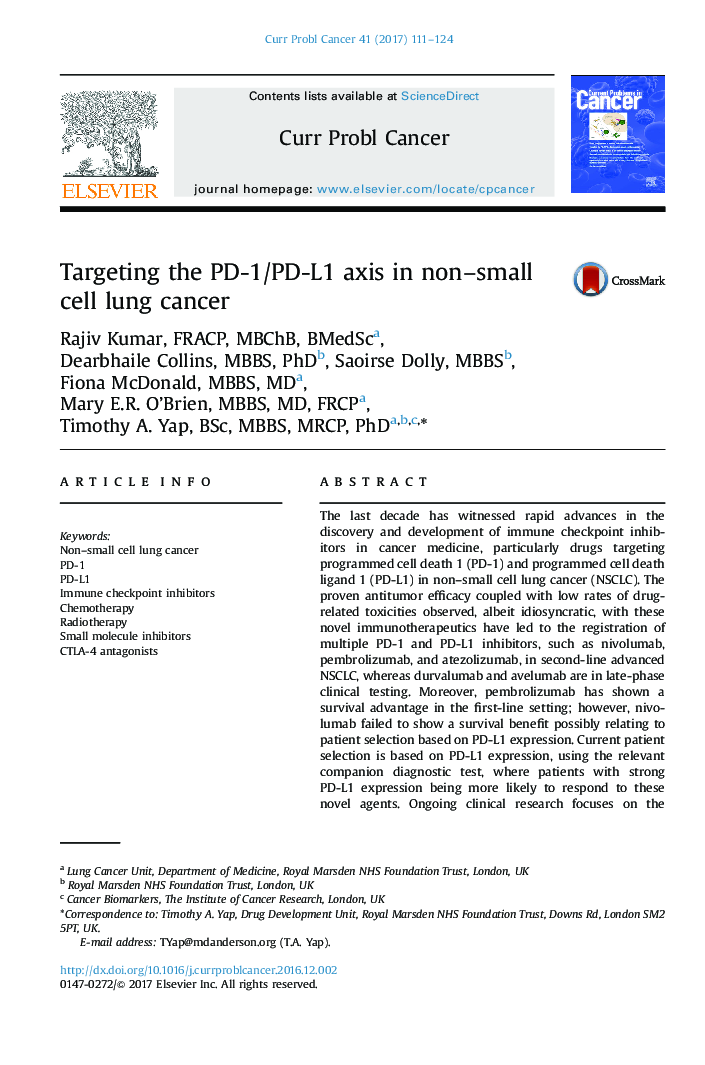| Article ID | Journal | Published Year | Pages | File Type |
|---|---|---|---|---|
| 5664235 | Current Problems in Cancer | 2017 | 14 Pages |
The last decade has witnessed rapid advances in the discovery and development of immune checkpoint inhibitors in cancer medicine, particularly drugs targeting programmed cell death 1 (PD-1) and programmed cell death ligand 1 (PD-L1) in non-small cell lung cancer (NSCLC). The proven antitumor efficacy coupled with low rates of drug-related toxicities observed, albeit idiosyncratic, with these novel immunotherapeutics have led to the registration of multiple PD-1 and PD-L1 inhibitors, such as nivolumab, pembrolizumab, and atezolizumab, in second-line advanced NSCLC, whereas durvalumab and avelumab are in late-phase clinical testing. Moreover, pembrolizumab has shown a survival advantage in the first-line setting; however, nivolumab failed to show a survival benefit possibly relating to patient selection based on PD-L1 expression. Current patient selection is based on PD-L1 expression, using the relevant companion diagnostic test, where patients with strong PD-L1 expression being more likely to respond to these novel agents. Ongoing clinical research focuses on the development of PD-1 and PD-L1 inhibitor monotherapy in neoadjuvant and adjuvant NSCLC. There is also much interest in using these drugs as a therapeutic backbone for rational combinations with other treatment modalities including cytotoxic chemotherapies in the first-line NSCLC, other immunotherapies such as cytotoxic T-lymphocyte-associated protein 4 antagonists, molecularly targeted agents including EGFR and ALK inhibitors, and radiotherapy. Concurrent treatment with radiotherapy is of particular interest owing to the potential for the abscopal effect, using radiotherapy to facilitate systemic treatment.
